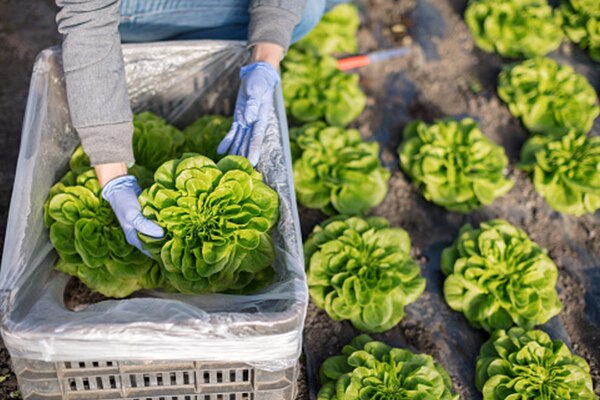Sustainability in agriculture has become a key focus in modern farming, aiming to balance environmental stewardship, economic profitability, and social responsibility. But what exactly does this concept entail? At its core, sustainability in agriculture refers to farming practices that meet today’s food needs without compromising the ability of future generations to do the same.
As the global population grows, the importance of sustainability in agriculture practices becomes more pressing. Agriculture has a profound impact on our planet—from soil degradation and water shortages to greenhouse gas emissions. A sustainable approach seeks to minimize these negative effects while maintaining or even improving agricultural productivity.
Historically, agriculture evolved from simple subsistence farming to industrialized methods that dramatically increased food production. However, these intensive practices have led to significant environmental and social challenges. Now, the focus is shifting back to practices that can ensure the longevity of both farming and the ecosystems they rely upon.
Principles of Sustainable Agriculture

At the heart of sustainable agriculture are guiding principles that aim to harmonize farming practices with the natural environment. These principles focus on preserving resources, maintaining ecological balance, and promoting long-term productivity.
1. Conservation and Preservation of Resources
A system for sustainability in agriculture prioritizes the conservation of vital natural resources like water, soil, and air. Water management, for instance, focuses on efficient irrigation systems and rainwater harvesting to reduce waste. Similarly, protecting soil from erosion and depletion is critical for long-term productivity.
2. Maintaining Soil Health and Fertility
Healthy soil is the foundation of sustainable farming. Practices such as crop rotation, cover cropping, and composting help maintain soil fertility. Reducing dependance on chemical fertilizers helps preserve essential soil microorganisms and nutrients for healthy crop growth.
3. Use of Renewable Resources and Reduction of Synthetic Inputs
Sustainability in agriculture encourages the use of renewable resources like solar energy and organic matter, reducing dependence on non-renewable fossil fuels and synthetic chemicals. This reduces the environmental footprint and safeguards ecosystems from pollutants such as pesticides and fertilizers.
Methods and Practices

1. Organic Farming Techniques
Organic farming excludes the use of synthetic pesticides, fertilizers, and genetically modified organisms (GMOs), focusing instead on natural methods to promote crop growth. This method emphasizes soil health, biodiversity, and ecological balance. Organic farmers use composting, green manure, and biological pest control to foster natural productivity.
2. Agroforestry and Permaculture
Agroforestry integrates trees and shrubs into agricultural systems, creating symbiotic relationships among crops, animals, and vegetation. This practice promotes biodiversity, improves water retention, and enhances carbon sequestration, all of which are key to combating climate change. Permaculture, on the other hand, is a holistic design system that mimics natural ecosystems to create self-sustaining agricultural landscapes.
3. Integrated Pest Management and Crop Rotation
Integrated Pest Management (IPM) combines biological, cultural, and mechanical methods to manage pests with minimal chemical use. This approach emphasizes prevention over treatment. Crop rotation, a centuries-old practice, involves alternating the types of crops grown in a particular area to prevent the depletion of soil nutrients and disrupt pest cycles.
Benefits of Sustainable Agriculture
1. Environmental Benefits
Sustainability in agriculture significantly reduces environmental damage. It helps combat soil degradation, water contamination, and biodiversity loss. By avoiding synthetic inputs, farmers contribute to cleaner air and water, while diverse cropping systems promote healthier ecosystems. Moreover, sustainable practices like agroforestry and no-till farming improve carbon sequestration, helping mitigate climate change.
2. Economic Benefits
Although the initial transition to sustainable agriculture may involve a higher production cost, the long-term economic benefits can be substantial. Sustainable farms tend to have better soil health, resulting in higher yields over time. Additionally, there is growing market demand for organic and sustainably produced goods, offering farmers new revenue opportunities. By reducing reliance on expensive synthetic inputs, farmers can also lower production costs.
3. Social Benefits
Sustainable agriculture goes beyond just environmental and economic gains. It plays a crucial role in promoting food security and community well-being. Practices that prioritize local ecosystems often lead to healthier, more resilient communities. Farmers who adopt sustainable practices are better positioned to provide stable food supplies, promote rural livelihoods, and ensure community health.
How Nestlé Plays Its Part in Sustainable Agriculture

Nestlé, one of the largest food and beverage companies in the world, is playing a significant role in promoting sustainability in agriculture. Nestlé has made strides in improving the sustainability of its coffee and cocoa supply chains. The company's commitment to responsibly sourcing these crops has led to improvements in soil health, reductions in deforestation, and better income opportunities for farmers through brands like Nescafe. Nestlé is also focused on reducing its carbon footprint and water usage across its supply chains, all while ensuring that its products are produced sustainably. Learn more about Nestle’s initiatives in regenerative agriculture here.
The Path Forward for Sustainable Agriculture
Sustainability in agriculture is a vital shift in how we approach farming to secure the future of our food supply. By prioritizing resource conservation, renewable energy, and thoughtful land use, sustainability in agriculture tackles the environmental, economic, and social challenges we face today.
The transition to more sustainable practices involves everyone—farmers, businesses, and consumers. As awareness of the environmental impact of conventional farming grows, so does the demand for greener, more sustainable methods. Ultimately, sustainable agriculture is essential for creating a future where we can meet the world's food needs without exhausting our planet's resources.
Now that we have a deeper understanding of sustainability in agriculture and its vital role in protecting our planet, it’s clear that consumers play a significant part in driving change. Every purchase we make sends a message about the kind of world we want to live in. Choosing sustainably sourced products supports eco-conscious farmers and helps preserve vital natural resources.







